BRICK LANE | Brazil | Natural
BRICK LANE | Brazil | Natural
Couldn't load pickup availability
Our signature single origin coffee, made for everyday. A solid option that is versatile, delicious, reliable and a real crowd pleaser.
This coffee is presented both a product, and a social concept; a tasty, readily available, and environmentally efficient coffee, that has been grown exclusively by female producers at origin.
Micro batch roasted to order at our cafe, on London’s Brick Lane, using the world’s lowest carbon emitting roaster.
ORIGIN: Brazil
REGION: Monte Carmelo, Minas Gerais
PRODUCER: Female Producer Initiative
VARIETAL: Mundo Novo
PROCESS: Natural
ELEVATION: 900-1200 masl
Share
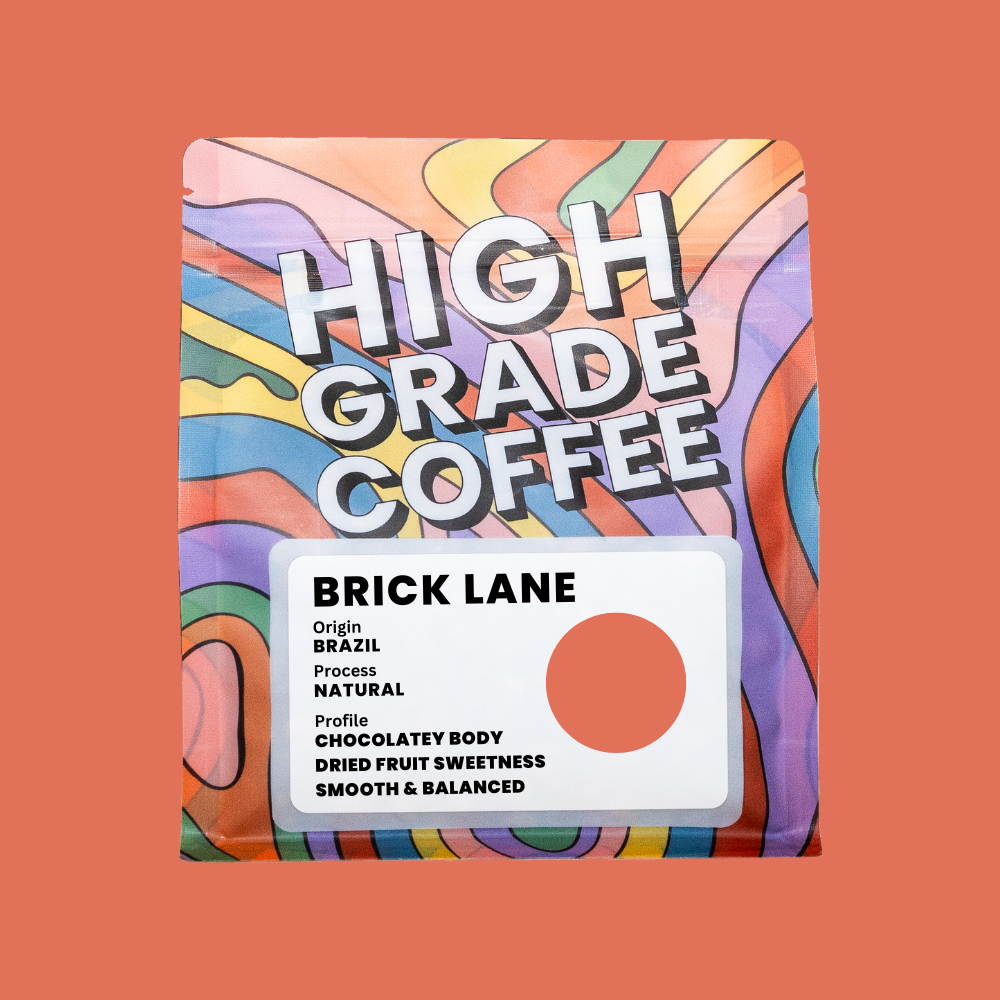

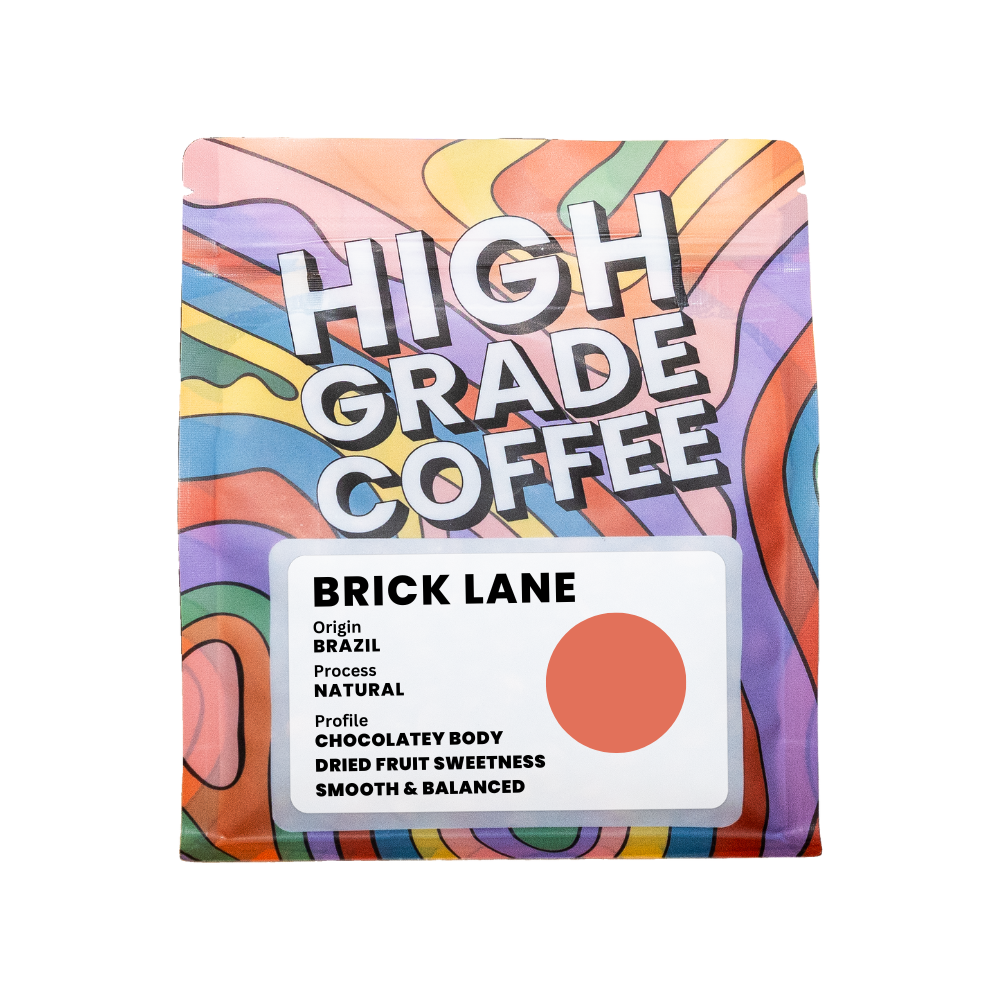
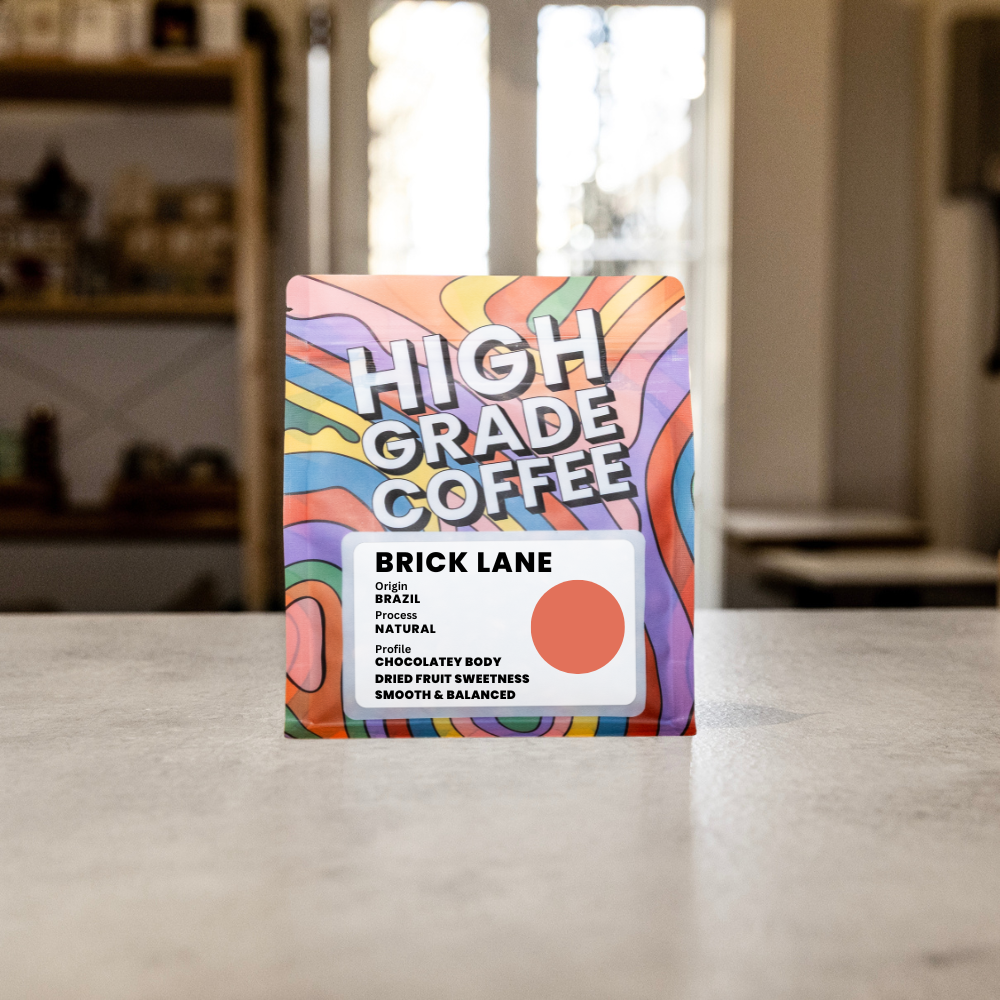
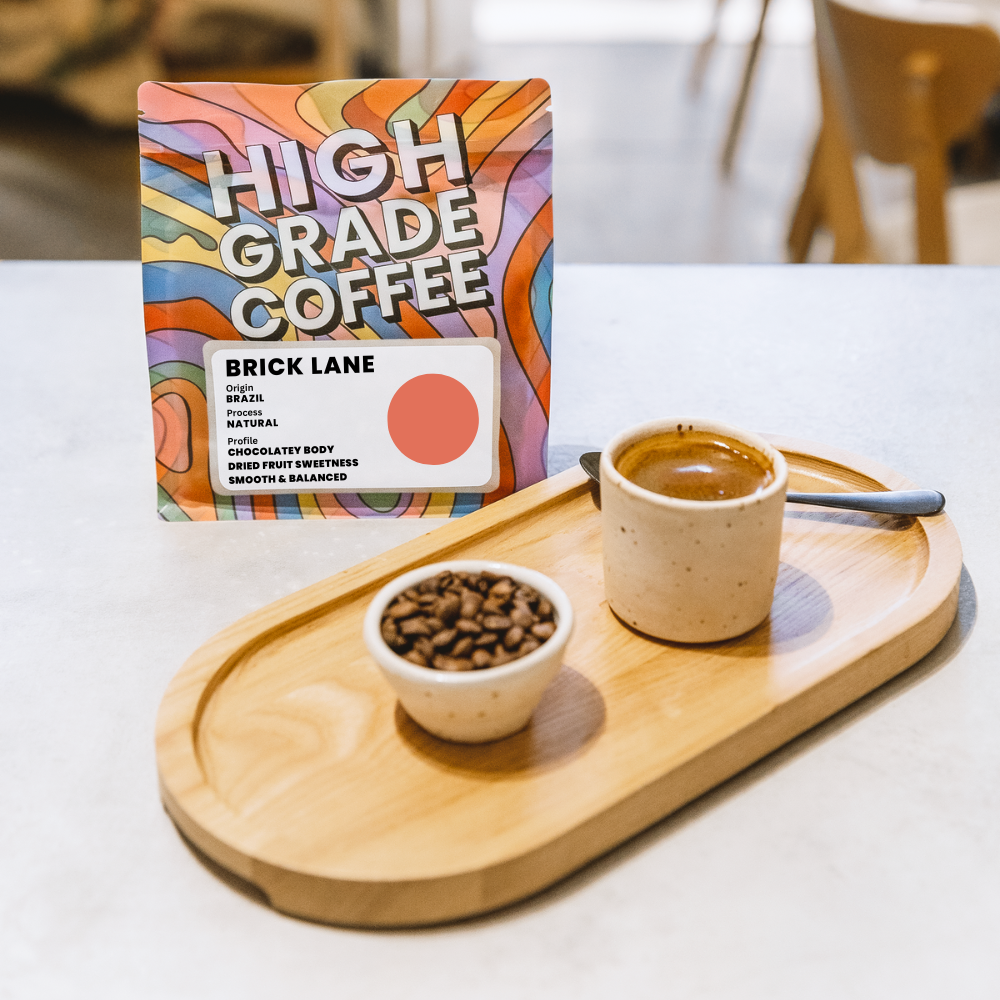
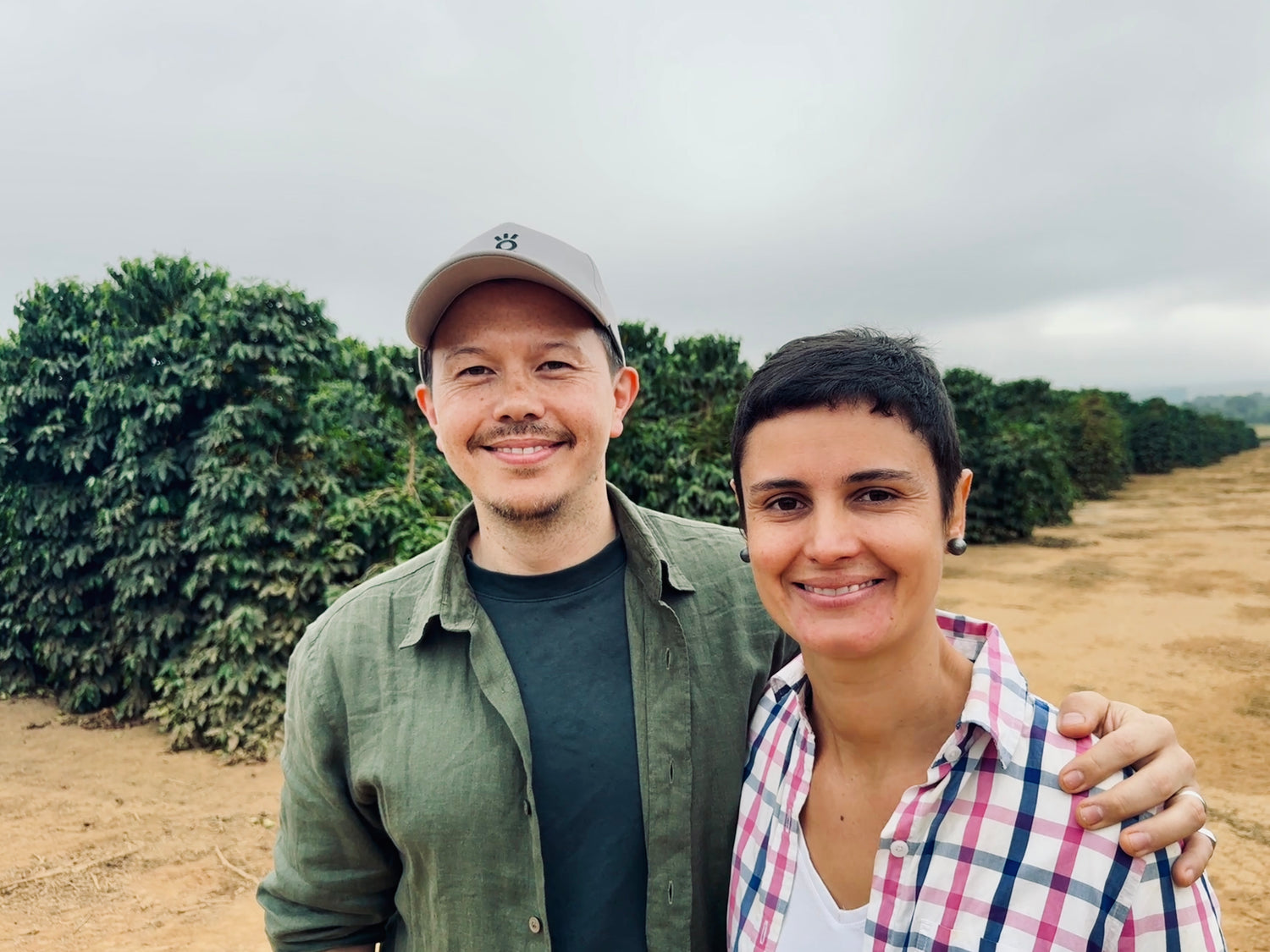
a bit about the bean
Female powered coffee
Our Brick Lane coffee is directly sourced through a programme that buys coffee at a premium exclusively from female producers.
This social impact initiative will hopefully encourage more women to join and continue to thrive in the industry.
Additionally the coffee quality and yield will likely see an increase, simply because, women make better farmers!
Click the button below to learn more about the Cafe Delas programme.
More on the matter...
This coffee is grown exclusively by female producers in Brazil, and represents an important aspect of the coffee industry. This coffee stands out not only for its superior quality and distinct flavour profile but also for its significant social impact.
Brazil is the world's largest coffee producer, and is renowned for its diverse coffee growing regions, each offering unique microclimates and soil conditions that contribute to the complex flavors of its beans.
The specialty grade beans from these regions are meticulously cultivated and harvested, ensuring that only the best cherries are selected for processing.
This rigorous selection and sorting process results in a coffee that boasts a rich, smooth taste with nuanced notes that might include hints of chocolate, nuts, and fruity undertones.
What truly sets this coffee apart however, is its exclusive production from female farmers. In an industry historically dominated by men, these women are breaking barriers and creating new opportunities for themselves and their communities.
By focusing on quality and sustainability, these female producers are not only providing for their families but are also contributing to the social and economic development of their regions. Their work fosters gender equality, empowers women, and supports the growth of local economies.
Coffee produced by female farmers is often associated with sustainable farming practices. These women are committed to protecting their environment and ensuring the long term viability of their farms. This commitment to sustainability often includes organic farming methods, co2 sequestration, fair trade practices, and initiatives that promote biodiversity.
Supporting our single origin High Grade coffee means enjoying an exceptional product while also making a positive impact on the lives of these dedicated farmers and their communities.
This coffee represents the perfect blend of quality, sustainability, and social responsibility, offering consumers a rich, flavourful experience that they can also feel good about.
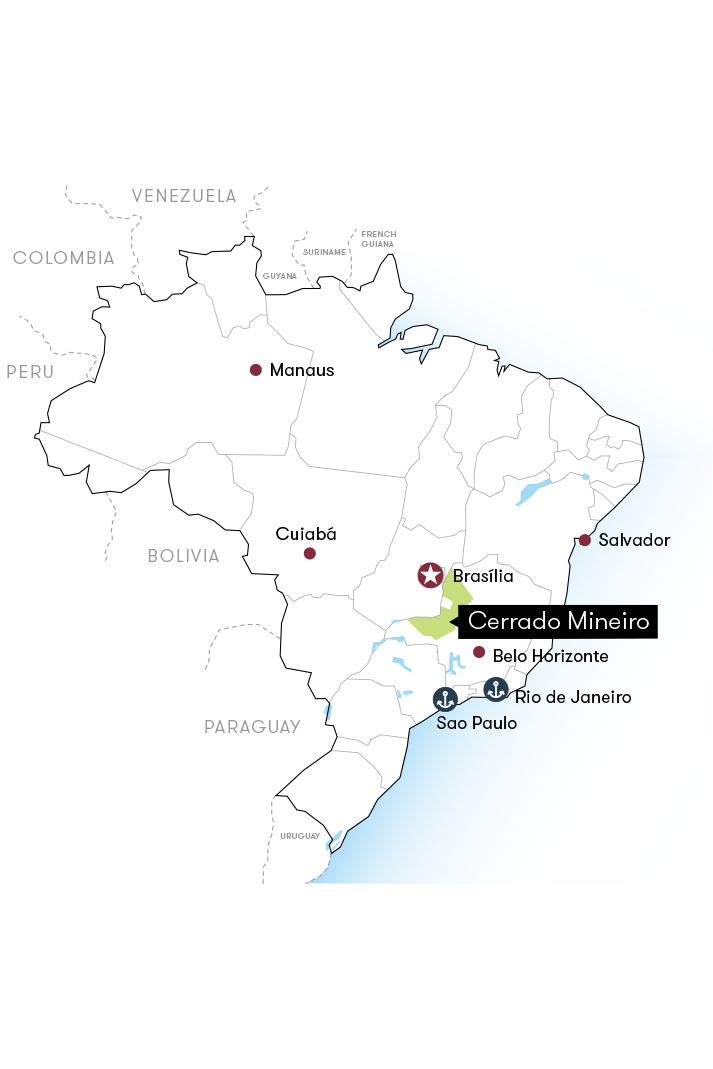
a bit about the region
Brazilian coffee
Minas Gerais is one of the largest coffee-growing states in Brazil and plays a critical role in the country's coffee industry. The state is known for its diverse coffee landscapes and varied climate, which contribute to the production of different coffee profiles.
Monte Carmelo: Monte Carmelo is a municipality in the state of Minas Gerais. It is part of the Cerrado Mineiro region and is known for producing high-quality coffee. The area benefits from altitude ranging between 800 and 1,200 meters above sea level.
The climatehas a well-defined dry season that helps in the maturation of coffee cherries, and a soil that is fertile, with good drainage, contributing to the health of coffee plants.
Flavour Profile: Coffees from this region are often known for their nutty, caramel, and chocolate notes, with a balanced acidity and medium to full body.
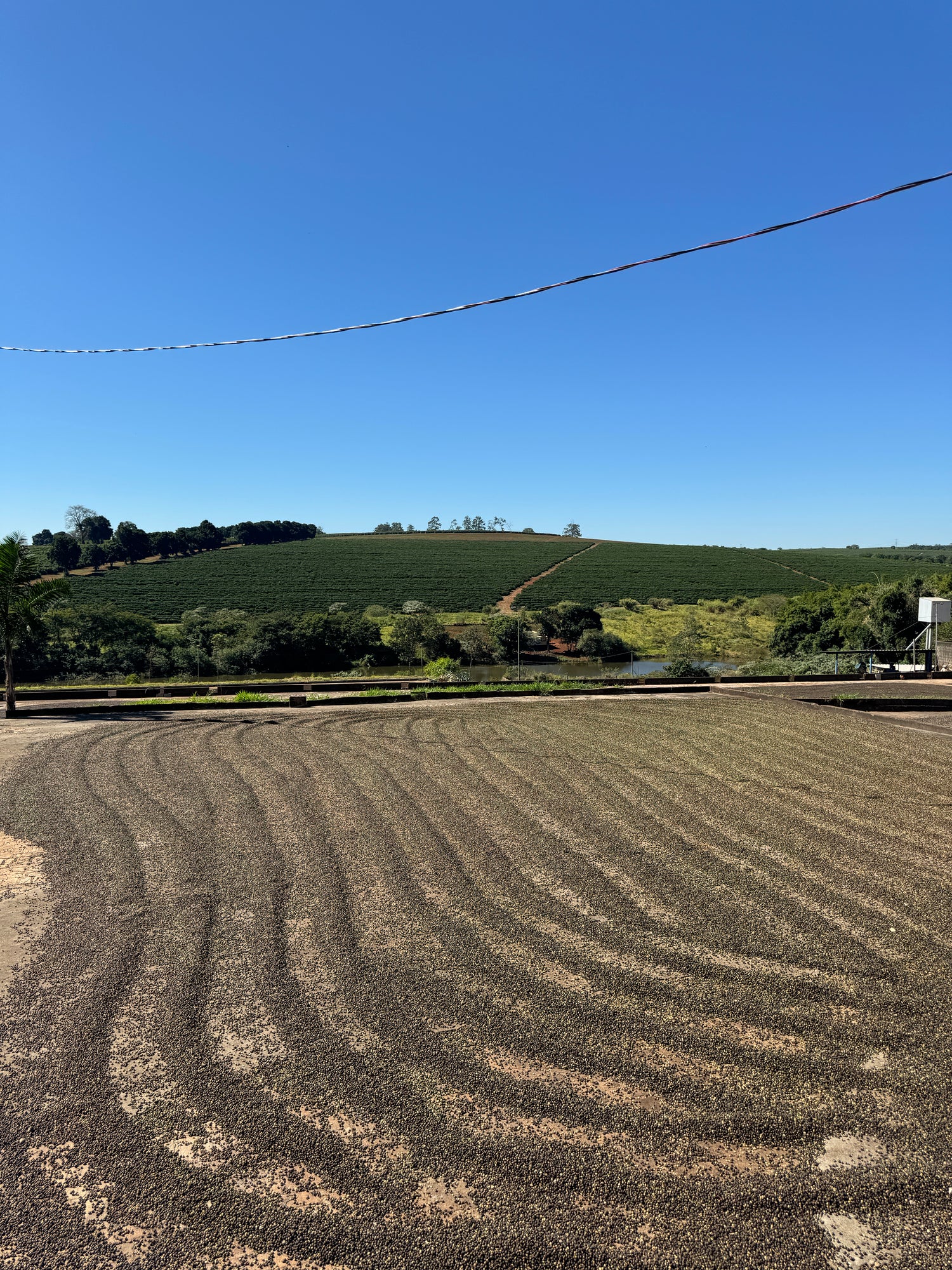
a bit about the processing
Natural/dry process
The natural processing method, also known as dry processing, is one of the oldest methods of coffee processing. Unlike washed processing, which removes the cherry's pulp before drying, natural processing involves drying the whole coffee cherry. This method emphasises the fruit's intrinsic characteristics, often resulting in beans with a distinctive fruity and sweet flavour profile.
Harvesting:
In Minas Gerais, ripe coffee cherries are harvested via a few different methods, on larger farms, machines are used to speed up the process and cover large amounts of land, this is only possible due to the unique terroir of the region; table top mountains, or large flat areas of land that sit at altitude. In some farms and on smaller lots, mechanical hands are employed, or the cherries are picked via the traditional method; by hand.
Drying:
The harvested cherries are spread out on large patios or raised beds to dry under the sun. During this period, which can last several weeks, the cherries are regularly turned to ensure even drying and to prevent mould or fermentation. Throughout the drying process, farmers carefully monitor the moisture levels of the cherries. Optimal drying is crucial to prevent over-fermentation, which can lead to undesirable flavours. Typically the producers are aiming to reach a moisture level of around 11-12%
Hulling, sorting & grading:
Once the cherries are adequately dried, they are hulled to remove the dried fruit husk, leaving the green coffee beans. This is usually handled at a dry milling facility. The beans are then sorted and graded based on size, weight, and quality. This step ensures that only the best beans make it to the specialty coffee market. In the case of specialty coffee, some of these steps are repeated multiple times to finely filter the beans and increase the final quality of the product ready for export.





